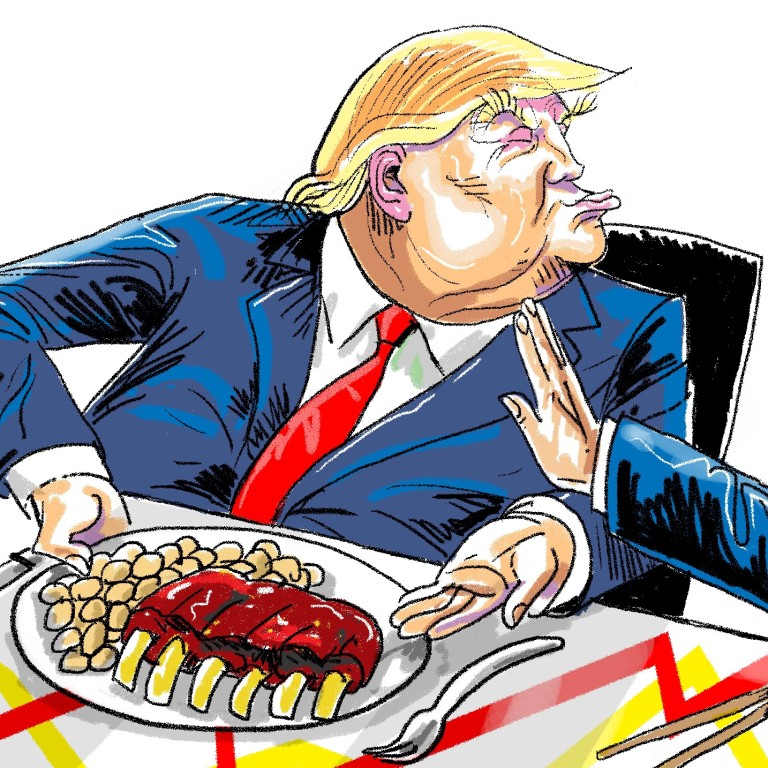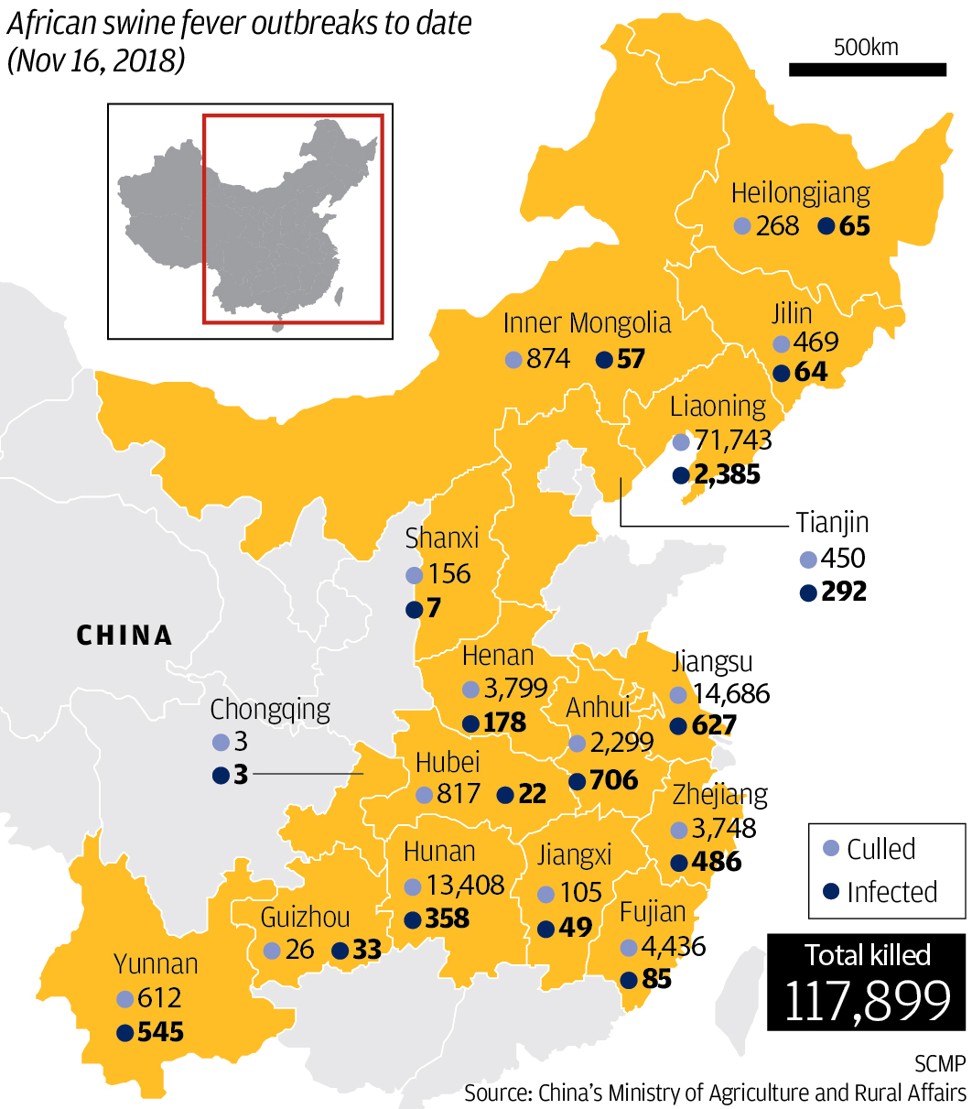
How much economic pain can China tolerate in the trade war? Donald Trump is about to find out
- A buying frenzy over pork in Shanghai might be a sign of economic trouble or an after-effect of the swine flu epidemic. Either way, it raises questions about the Chinese people’s capacity for withstanding the fallout from the US trade war
Pork is a staple food in China and a key indicator of food price inflation. Worryingly, pork prices have risen to new highs in recent weeks.
On August 20, the government of Putian city in Fujian province announced a subsidy of 4 yuan (US$0.56) per kg of pork; under the programme, locals with valid identity cards would be able to buy up to 2kg of pork. Yet, instead of assuring the public, the announcement fed anxiety among Chinese about returning to the days of meat coupons (which were introduced in the 1950s and only phased out in the 1990s).
While such fears are overblown, if there is such a thing as a national psyche, I am sure pork is embedded in China’s. This is a country where a full-page feature on President Xi Jinping’s recent visit to Gansu province and his love for the Chinese populace mentions his understanding of ordinary people’s deep longing to “eat meat”.
Global Times , in an op-ed article headlined “Costco’s opening in China defies US attempts at decoupling”, praises the US retailer for defying President Donald Trump’s order to leave China.
Li Guangdou, a Beijing-based brand consultant, sees troubling signs in the news story of “uncles and aunties fighting over a piece of pork” in Shanghai. “In a big city that is rich in commodities and tops GDP per capita rankings, this phenomenon of bargain hunting illustrates how people’s wallets are shrinking and their spending habits are changing.”
At the outset of the US-China trade war, economists sparred over which country could better withstand the economic pressure by presenting scenarios and data. Lately, analysts have been talking about the psychological breaking point on each side.
Daniel Chen, a China-born violinist turned YouTube commentator, argues that the Chinese are better positioned than the Americans to withstand the pressure of the trade war. Whereas the Americans would vote out a president if they had to “go from eating beef to eating pork ... the Chinese people have no problem going from eating meat to eating grass”.
Seen in this light, the trade war looks like a test of endurance.
The Chinese consume 700 million pigs annually, half the world’s total. Pork is their favourite meat, accounting for 60 per cent of their meat consumption.
According to the National Bureau of Statistics, livestock prices rose 18.2 per cent year on year in July, of which pork prices rose by 27 per cent and lifted the consumer price index by 0.59 percentage points.
Even Trump can’t halt march of overseas workers and their money flows
However, before Trump’s new tariffs came into effect on September 1, China stepped up its purchases of US pork: it imported 1,861 tons of pork in the week beginning August 16, up from 220 tons the previous week. It also purchased 10,200 tons of US pork in the week starting August 2, plus 9,589 tons of US soybeans in the week beginning August 9.
With the Mid-Autumn Festival approaching, pork prices are expected to soar, the result of seasonal demand outpacing replenishment of breeding stock in China. In fact, analysts believe the trend will continue into next year.
Whatever he says, Trump doesn’t care about Hong Kong either way
Chiu-Ti Jansen, with advanced degrees from Yale and Columbia, is the founder of multimedia platform China Happenings and a former corporate partner of international law firm Sidley Austin
Correction: An earlier version of the story stated that the increase in livestock prices lifted the consumer price index by 0.59 per cent. This is incorrect. The consumer price index was lifted by 0.59 percentage points.


